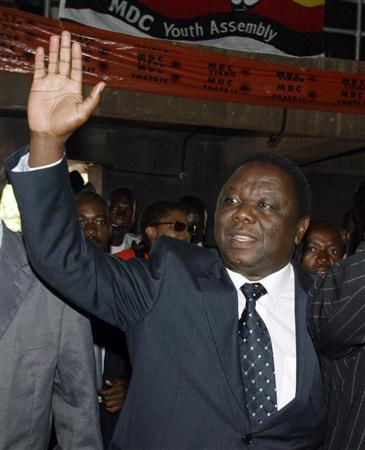– Alastair Reith

Leader of the Zimbabwean opposition Movement for Democratic Change, Morgan Tsvangirai
On 29 March 2008, the people of Zimbabwe went to the polls to vote in the parliamentary and presidential elections, and on the future of their impoverished country.
There was world-wide interest in the elections and a great deal of media coverage. These elections were seen as crucial in determining whether President Robert Mugabe and his ruling ZANU-PF party would maintain their 28-year hold on power, or whether the opposition Movement for Democratic Change (MDC) would take their place.
The elections were marred by violent clashes between the supporters of various parties and factions, and were carried out in an atmosphere of extreme tension.
Official results began to trickle in on March 31. By April 2 all the results for the lower House of Assembly had been declared, with the majority faction of the MDC, led by Morgan Tsvangirai, winning 99 seats, Mugabe’s ZANU-PF winning 97, the minority MDC faction led by Arthur Mutambara winning 10 seats, and one independent.
This was the first time since the end of white minority rule that Mugabe’s party had not held a majority, and it showed the level of dissatisfaction with him that exists in Zimbabwe.
Continue reading “Zimbabwe elections – a vote for change”

